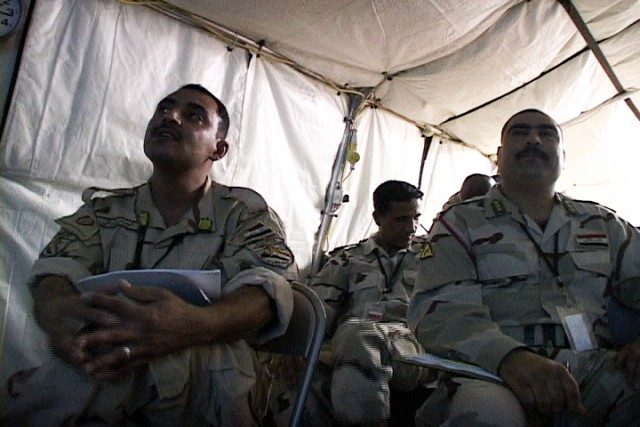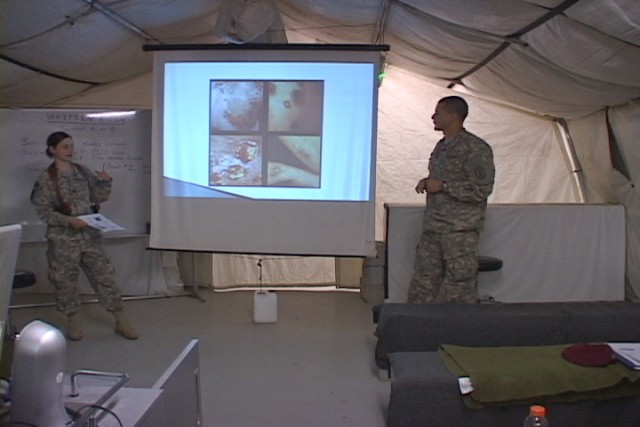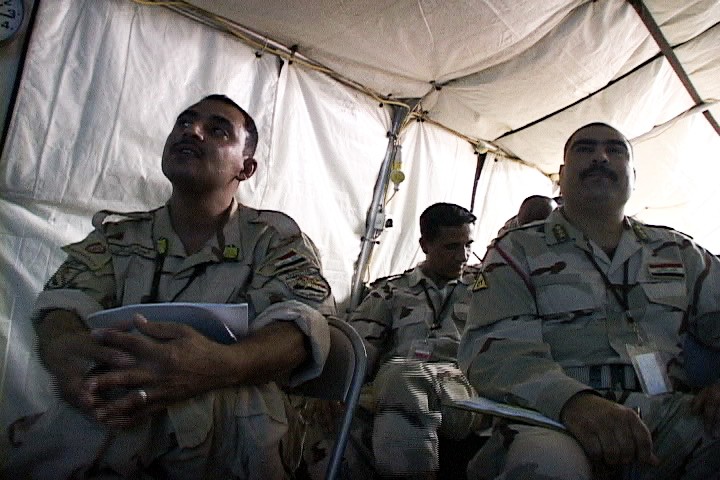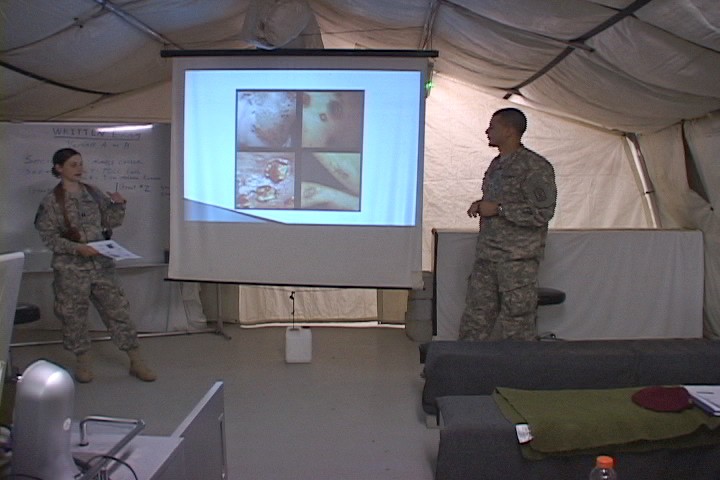Soldiers from the 17th Fires Brigade medical staff recently held a two-day course on preventive medicine at Contingency Operating Base Basra for medical personnel from the Iraqi Army's 14th Division.
The course provided six Iraqi medics with an opportunity to learn preventive medicine skills related to food handling, sexually-transmitted infections, nutrition, and loss of consciousness.
"Prevention is one of the most important factors that you as healthcare providers must consider," said Capt. Susan Mosier, Headquarters and Headquarters Battery, 17th Fires Brigade surgeon and native of Doylestown, Ohio. "It's critical that you keep your Soldiers informed of the risk involved with unsafe hygiene and sexual practices."
The course offered the Iraqis a unique opportunity as 2nd Lt. Karim Elymani, HHB, 17th FiB surgeon cell medical operations officer and a native of Morocco, translated the course into Arabic.
"I speak Moroccan, which is a collection of different languages, with Arabic being one. It's important that we don't lose the medical terminology in translation, which could lead to them providing incorrect treatment of their Soldiers," Elymani said.
The topics for the courses were chosen based off a survey the Iraqis filled out during a previous healthcare class.
Elymani said that, after visiting their dining facilities, he noticed things the IA could do to improve sanitation. He addressed those issues during his presentation on food handling.
"The course introduced the medics to standard cooking temperatures and proper cleaning techniques used throughout the U.S. to which the IA said they had never been exposed," Elymani said. "Everything taught during this course was requested by the IA directly, so it shows they're concerned with preventing illness."
Mosier later gave a class designed to inform the medics about different sexually-transmitted infections and treatment options.
"Some of the medications that we would prescribe for these infections in the U.S. aren't available here in Iraq," said Mosier. "Elymani's medical background helps us identify what medications the Iraqis are using and helps us better advise them on treating these conditions."
Maj. Anthony Rudd, 486th Civil Affairs Battalion emergency room physician from Tacoma, Wash., concluded the two-day course with an advanced class in handling unconscious patients.
After explaining to the medics the different levels of loss of consciousness and the characteristics associated with each stage, Rudd moved on to advanced case study evaluations.
"I wanted the medics to recognize that each case revolved around the ABC's: airway, bleeding and circulation," Rudd said. "I explained to them that although each case study varied in outcome, the process of evaluating the patients began the same way."
Mosier said the IA medical personnel have shown a real thirst for knowledge and have made several indications that they would like to have more training.
"We have already begun scheduling several other training sessions with more IA medical personnel," Mosier said. "Their development is critical to improving the health and wellness of the entire 14th Iraqi Army Division."




Social Sharing